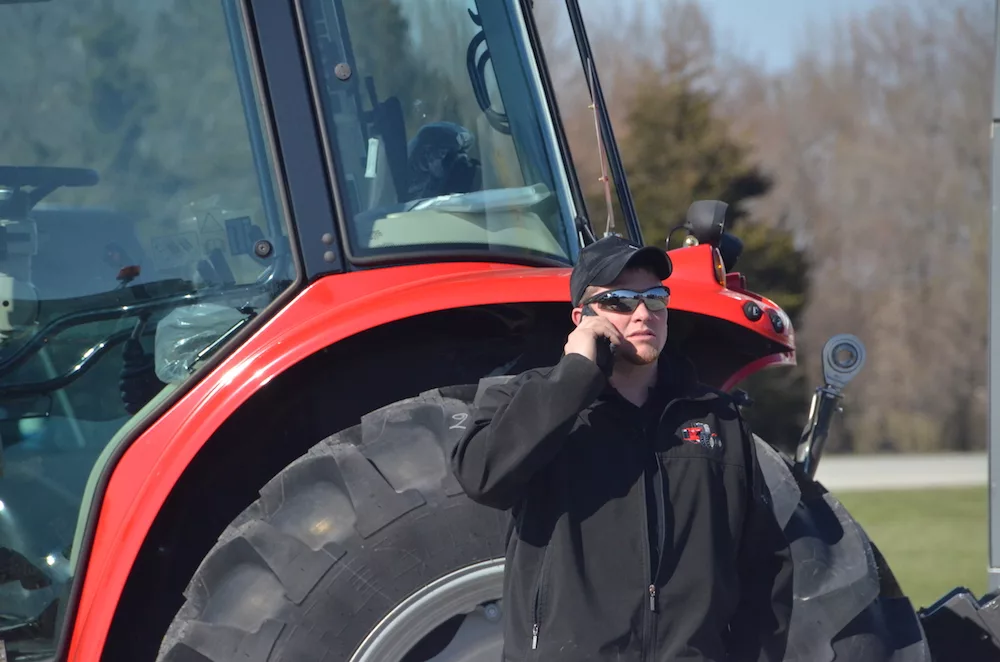When deciding how to craft and implement a precision farming service plan, dealers also need to figure out how much to charge.
Rarely is pricing a “set it and forget it” task because dealers are typically revising, updating or altering the scope of services in an annual plan.
According to Jon Eis, with Eis Implement in Two Rivers, Wis., setting realistic and attainable expectations with customers is the first step in pricing service plans.
“There shouldn’t be any surprises for the customer when you start dealing with service plans and support agreements,” Eis says. “You really need to make sure you draw the line in the sand in terms of what diagnostics means. Is it 15 minutes of diagnostics that’s provided or more?
Once you start to touch the machine and get into it, customers need to know for sure that they’re going to be charged a labor rate. What is that labor rate and what else is included in that support plan? How about travel and software updates? Dealers really need to be very clear on the details.”
One option is to select 6-10 customers to screen proposed service plans and solicit feedback. This can help eliminate potentially unnecessary elements to a plan and understand the most important inclusions customers are willing to pay for. Dealers also suggest taking a transparent approach by providing a rundown of service plans and what they include on the dealership’s website.
But one of the key challenges in getting customers to initially invest in a support plan is showing them the value. One pathway for overcoming the obstacle is tracking the service hours that dealers spend with a customer enrolled in service plan, and then providing an annual report to the customer detailing how much labor was actually provided within that support plan throughout the year.
“If it’s 100 hours and your hourly labor rate is $105, show customers that value so that they start to realize the value of the service plan,” Eis says.
Another tactic is to promote service plans like insurance. Farmers are familiar with insurance for their equipment, their homestead and their crops, so leveraging annual support plans as “service insurance” can justify the expense to customers.
Yet another option to is to incentivize customers to attend training events. Offering a discount on service plans for attending is an approach that dealers have found successful. Internally, precision managers and specialists need to have a good working relationship with salespeople and have a mutual understanding of the value the plans provide, especially in conjunction to an equipment sale, such as a new planter.
“You can improve your planter sales by requiring the precision farming department to be directly involved in the sale of planters,” Eis says. “Maybe it’s a situation where the sales team and the precision team split the commission on the deal, or it’s a combination of where the precision team builds their margin into any precision added value software or hardware or attachments that are put on that machine.”
You May Also Be Interested In...
20 Ways to Build Your Billable Precision Service Revenue
Precision Farming Dealer has collaborated with a diverse group of retailers of all sizes, colors, and locations to provide YOU with the best advice, insights and experienced-based tips for your precision business. This FREE eGuide is equipped with 20 proven tips, tactics and techniques for making precision services a recurring revenue stream with your dealership’s precision business. Download now »
Dialing Up Success with Precision Phone Support
While many dealers have made strides in being able to bill for precision service, consistently charging for phone support continues to be a struggle.
But it’s becoming more of a priority for dealers to recoup revenue for their time and expertise. As one dealer notes, “a phone for precision specialist is like a wrench for a mechanic and we should be paid for using our tools the same as they are.”
One of the starting points for dealers — and often a challenging one — is tracking calls, both length and volume. One recommendation is including a precision farming logo or indicator on a customer’s caller ID to let the dealership know the farmer is enrolled in a phone support plan. Other options include utilizing call logging apps to tabulate call length.
Nathan Zimmerman, precision farming manager with A.C. McCartney suggests starting small and setting modest expectations when rolling out precision phone support plan. He set the dealership’s price at $300 per year for its base service plan, which includes unlimited phone support, along with discounts on technology parts and labor, free loaner equipment and two training opportunities per year.
For those customers outside of the plan, the dealership charges $25 per phone call.
“My personal advice, is try to implement a phone support plan,” Zimmerman says. “There is a concern starting to charge for phone service will scare customers away to a competitor. But since we’ve implemented ours in about 2015, we haven’t seen that at all. Farmers do find value in it, but you’ve got to pick the right price point.”







